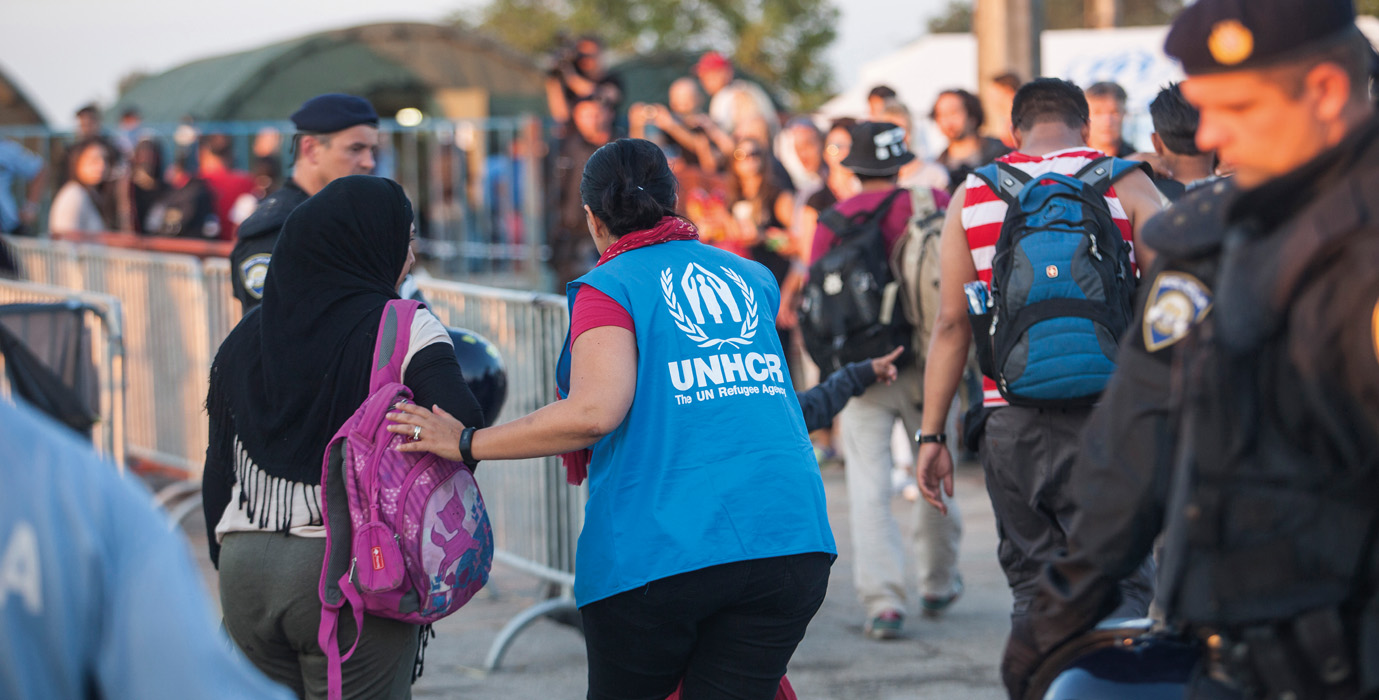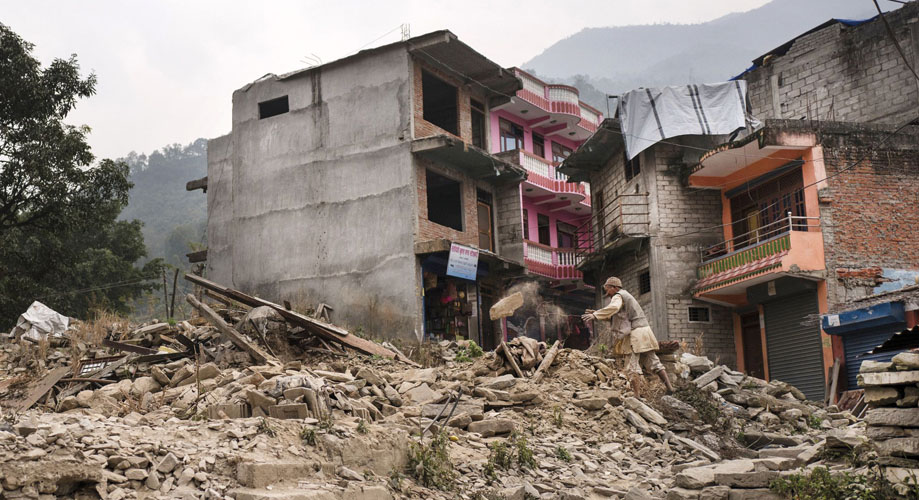Emergency Relief
A number of natural disasters and the increased flow of refugees fleeing conflict have increased humanitarian crises. In 2015, Inditex destined 27% of its investment at social and humanitarian aid programmes to improving the lives of these people in a situation of vulnerability.
Support to the MSF Spain Emergencies Unit
Médicins Sans Frontières (MSF) focuses its activities on caring for victims of emergencies caused by conflicts, epidemics, nutritional crises and natural or manmade disasters. The medical and humanitarian organization is constantly adapting its resources to respond to unforeseen circumstances.
The Emergency Unit of MSF can mobilize its people and resources within 48 hours to respond to any humanitarian crisis. At the same time, this unit is able to coordinate supplies and logistics centres to dispatch medical and humanitarian aid anywhere in the world where it is needed.
Throughout 2015, the MSF Emergency Unit has managed and dealt with the needs of victims of the Yemen conflict. It has also helped refugees fleeing to Europe. MSF also continues to support the large refugee movements caused by the threat of Boko Haram in Niger and Nigeria. It is also helping in countries where Ebola remains present, and it has monitored the most complex humanitarian needs caused by the Nepal earthquake.

Refugee crisis in Europe
The flow of migrants to Europe intensified in 2015 as people fleed armed conflicts, poverty or human rights violations. Faced with this situation, Inditex set up an emergency relief programme to provide support to this refugee crisis, as well as asylum seekers and other migrants forced from their homes in search of a better life.
Inditex is collaborating with a number of wellknown non-profit organisations to tackle the issue from a range of angles. As part of this, Inditex is taking the following lines of action:
Contributions in the form of clothing: In 2015 Inditex donated more than 386,000 articles of clothing in humanitarian and refugee aid. These contributions in kind have been channelled through UNHCR, LIFE for Relief and Development and the Red Cross in countries such as Greece, Austria, Iraq and the Lebanon.
Financial support for the Emergency Unit of MSF-Spain: the emergency unit funded by Inditex since 2011 provides humanitarian aid in different countries such as Hungary or Serbia which are facing a large influx of refugees. More specifically, the Médicins Sans Frontières (MSF) teams have provided medical care, and emergency relief, in particularly critical zones.
Regular projects with MSF to support refugees along the Syrian border with Turkey: In addition to the one-off activities mentioned above, Inditex specifically collaborates to assist people fleeing the armed conflict in Syria since 2013 through a regular project with MSF. In 2015 we doubled the financial aid contributed to this project, which is being implemented along the border between Turkey and Syria, through an annual contribution of €1 million. The MSF teams have focused on guaranteeing primary healthcare, psychological support, gynaecological and obstetrics services for women, and post-operative care. Furthermore, faced with a massive arrival of people as a consequence of the temporary blockades at borders, MSF has distributed much-needed basic items to support the refugees. Medical and humanitarian assistance has also been provided to more than 57,000 people.
The project to fight against Kala Azar in India
Visceral Leishmaniosis or Kala Azar is a forgotten illness transmitted by sandflies which is fatal when not addressed with timely treatment. The Indian state of Bihar, located in north-east India on the border with Nepal, suffers from almost half of the world’s cases.
Médicins Sans Frontières (MSF) started this project in 2007 to diagnose and to treat this illness. Since then, several international organizations have promoted medical research to achieve simpler treatments offering better results, which can be used as a benchmark for other countries. As a consequence of this innovative effort, more than 13,000 people have been treated since the project began, with a success rate higher than 90%.
Access to treatment has also been guaranteed and the project has resulted in reducing the number of reported cases in the country in 2015 to fewer than 10,000. This represents huge progress and a significant improvement in the quality of life for the hundreds and thousands of people that were suffering from this illness when the project began.
Having fulfilled these objectives, efforts are now focusing on identifying the prevalence of Kala Azar with other illnesses such as HIV, to foster a change of protocols for co-infected patients and their early treatment.
Since 2010, Inditex has donated a total €2.3 million to this project, with €350,000 having been allocated in 2015.
Project to tackle child malnutrition in India
In 2009, Médecins Sans Frontières (MSF) started this project to combat child malnutrition in the district of Darbhanga (Bihar), a state in the north-east of India on the border with Nepal. At that time, almost 5 in every 100 children under the age of five in this region were suffering from severe malnutrition.
Since then, more than 19,000 children have received specific treatment and more than 90% of cases have been treated, turning this care strategy into the most efficient way of fighting against this pandemic, as well as offering the authorities a model that can be easily replicated in other districts by introducing the project into India’s public health service.
Inditex has been supporting this project since 2011, with a contribution to date €2.8 million, of which €650,000 was donated in 2015.

Nepal Earthquake Emergency
On 25 April 2015, an earthquake measuring 7.8 on the Richter scale shook Nepal and devastated what was already one of the most vulnerable countries of the world. Barely two weeks later, a second earthquake of a similar magnitude hit the country. Almost 9,000 people died and more than 22,000 were injured. More than 600,000 houses were completely destroyed and a further 290,000 suffered major damages.
In response to this, Inditex launched a humanitarian aid programme channelled through three of the main organizations with a stable presence in the region: Red Cross, Oxfam and Cáritas.
Activities implemented via the Red Cross focused on providing the population with basic survival items, in particular blankets and tents, as well as providing permanent and stable healthcare.
With the contribution made to Oxfam a shipment of supplies was organized to supply water, sanitation and shelter for those affected. A complete series of vital aid was organized to avoid the spread of diseases in the immediate aftermath of the tragedy.
At the same time, Cáritas distributed emergency kits to those affected, which included food, tents, blankets, underwear, soap and washing items. Search and rescue operations were also carried out to find people trapped among the rubble. This enabled part of the population whose homes had been destroyed by the earthquake to immediately find temporary shelter and basic conditions of sanitation, hygiene and water.